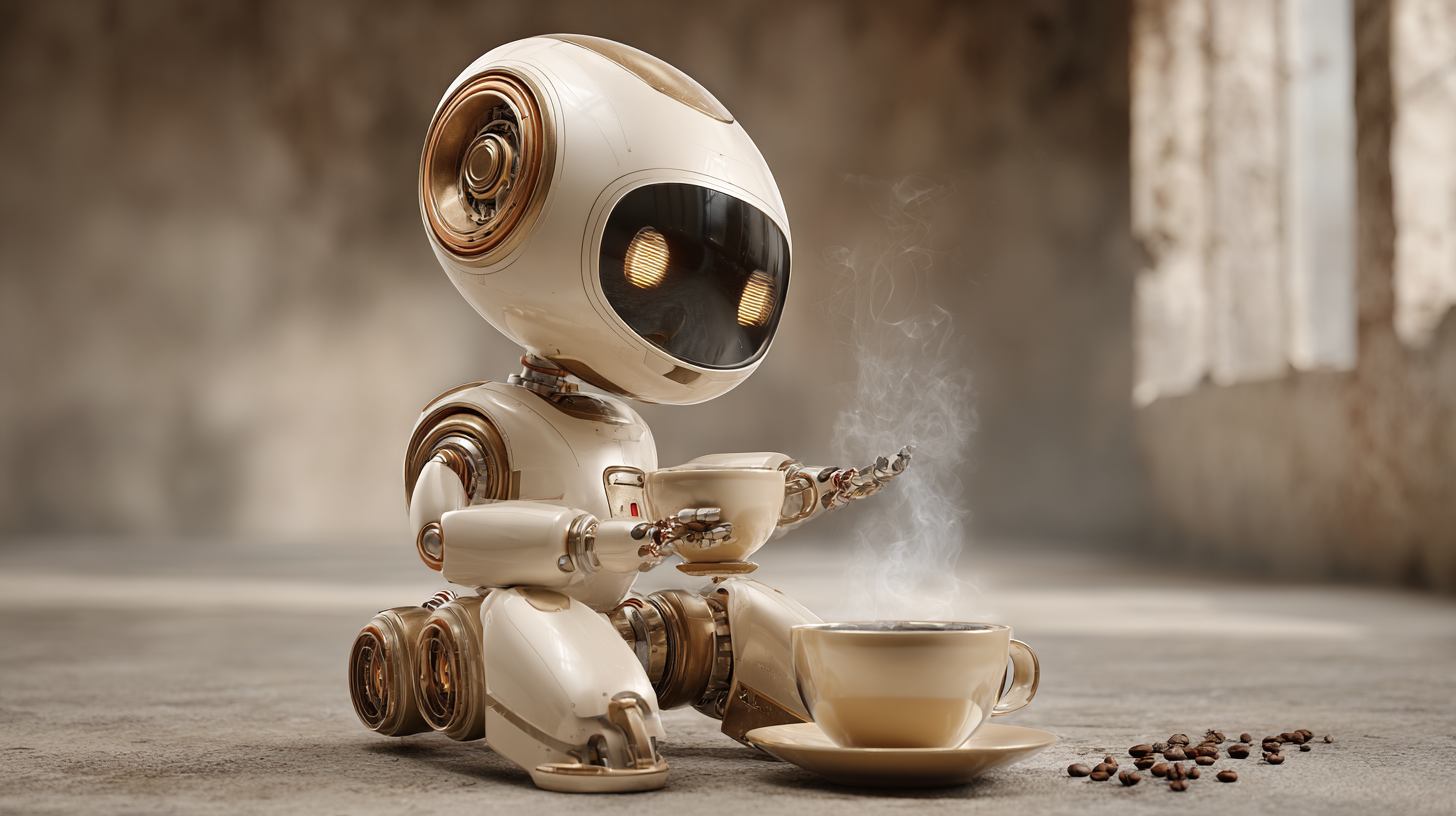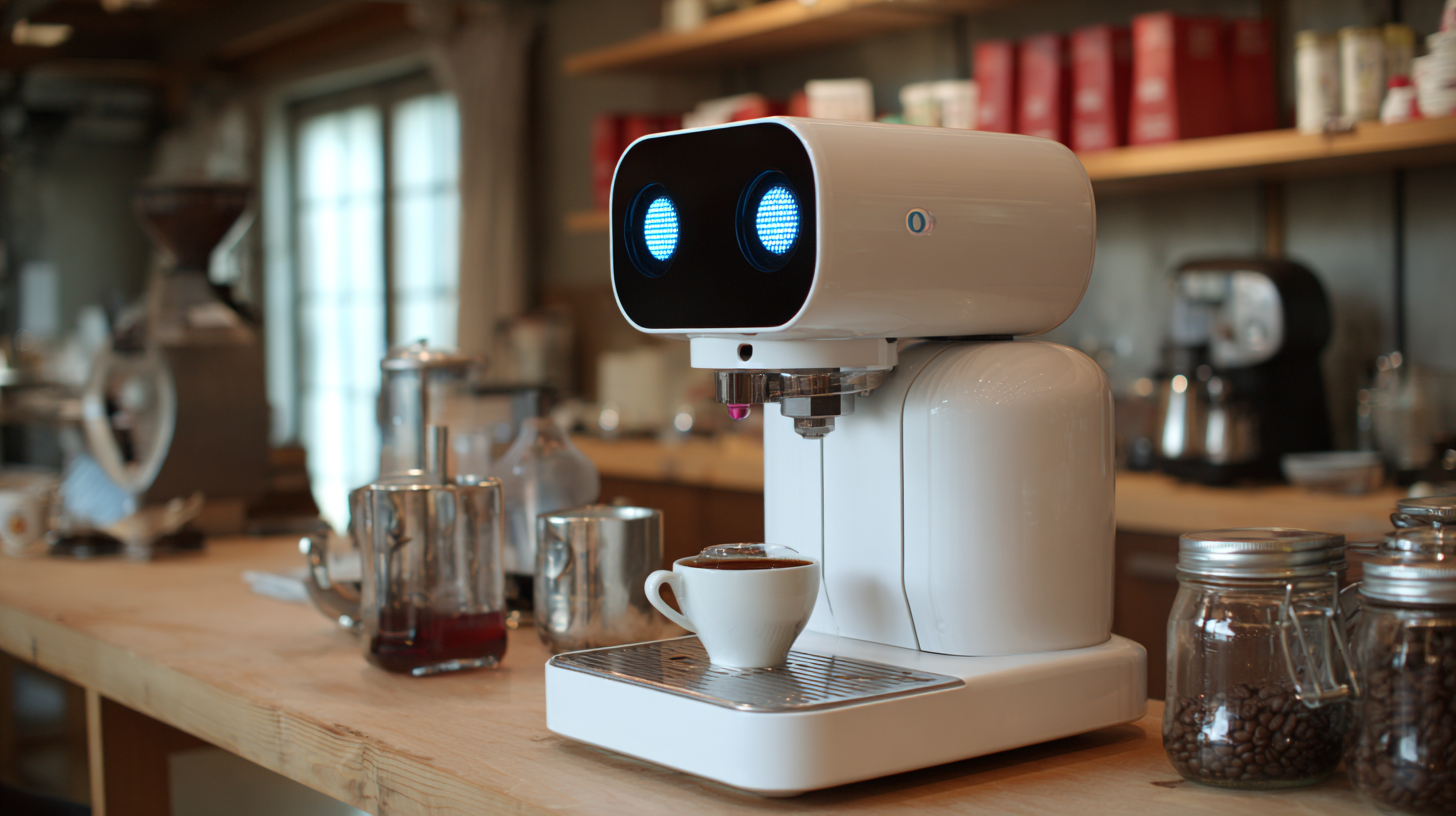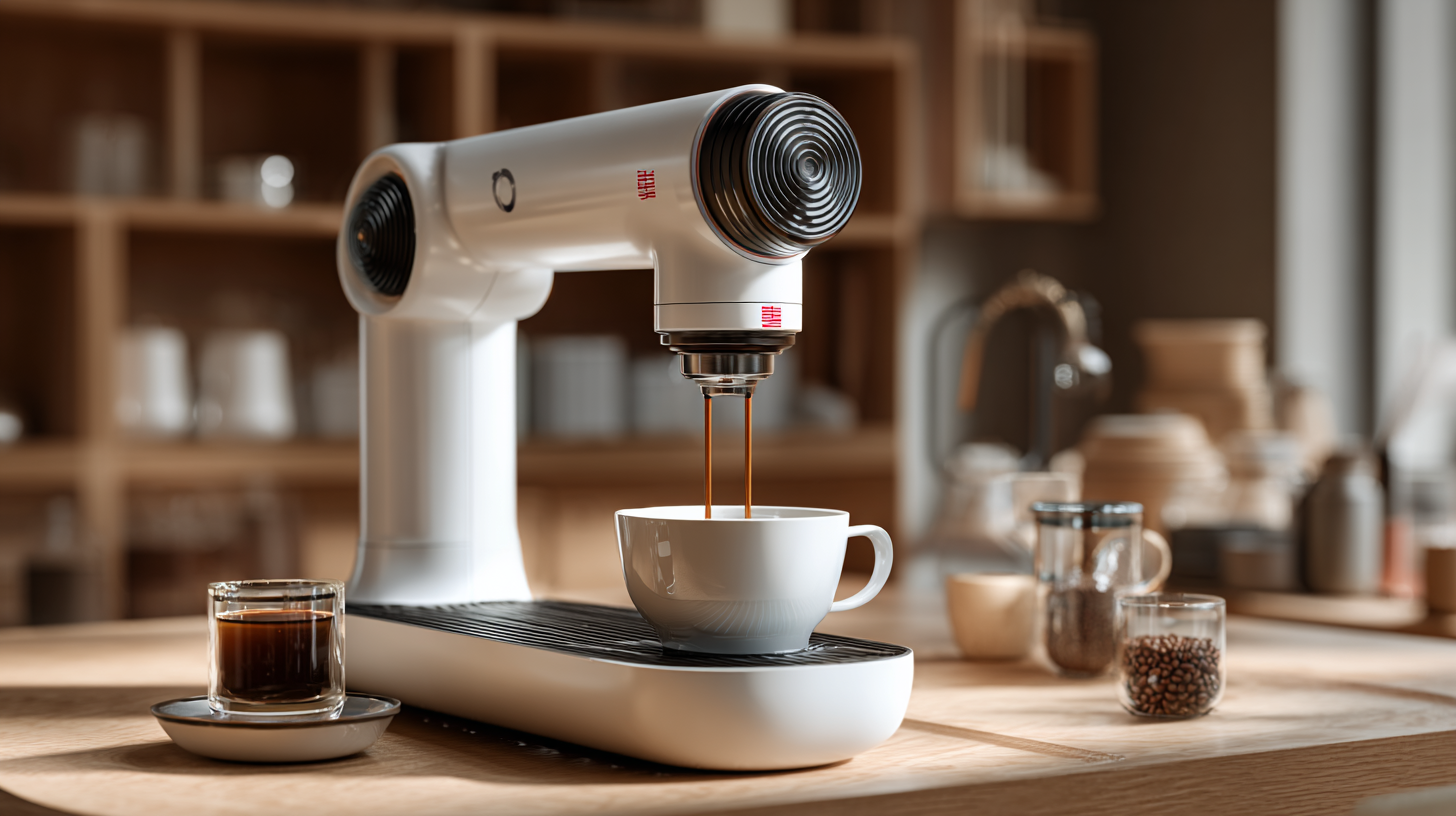As coffee enthusiasts continue to seek fresh ways to enhance their brewing experiences, the emergence of technology introduces exciting possibilities for innovation in this beloved beverage. Among these advancements, Coffee Robots are paving the way for a revolution in how we prepare and enjoy our coffee. These automated machines promise not only to streamline the brewing process but also to elevate the quality and consistency of our favorite drinks.
In this exploration of the future of coffee, we delve into how Coffee Robots can transform traditional brewing methods, making them more efficient and accessible to all. With the ability to precisely measure ingredients, maintain optimal brewing temperatures, and automate complex brewing techniques, these robots are redefining the coffee experience for both industry professionals and home brewers alike. In the following sections, we will discuss the functionality, advantages, and potential impact of integrating Coffee Robots into our daily routines, ultimately presenting a vision of a coffee culture that harmonizes the art of brewing with cutting-edge technology.
Join us as we embark on a journey to discover how Coffee Robots are set to change not only the way we make coffee but also how we perceive the art of brewing itself, making each cup a seamless blend of tradition and innovation.

The rise of coffee robots is revolutionizing the brewing process, merging technology with the artistry of coffee making. As the coffee industry embraces automation, traditional methods often associated with the third-wave coffee movement, such as “hand-roasted” and “brewed by hand,” are now being complemented by precision technology. These innovative machines can replicate the finesse of skilled baristas, ensuring consistency and quality in every cup. The implementation of coffee robots in cafés illustrates a shift where automation not only enhances efficiency but also maintains the high standards demanded by today’s discerning coffee drinkers.
At the same time, the emergence of home café culture, particularly among younger generations, signals a growing passion for coffee that marries tradition with modernity. Young brewers are transforming their living spaces into coffeehouses, sharing their unique brews and experiences on social media platforms. This trend reflects a desire for creativity and connection, allowing coffee enthusiasts to explore flavors like matcha alongside traditional brews, while robots serve as a bridge that can facilitate this exploration. As consumers eagerly embrace these technological advancements, the role of coffee robots will likely expand, shaping the future of both home brewing and café experiences.
The coffee industry is witnessing significant transformations with the rise of automation and innovative technologies. According to a recent market research report, the US coffee market is projected to reach a staggering USD 150.88 billion by 2025, reflecting robust growth driven by evolving consumer preferences and a shift towards sustainability. Automation in coffee production is becoming a pivotal trend, offering efficiency and consistency that traditional brewing methods may lack. These advancements not only streamline operations but also enhance the quality of coffee, catering to an increasingly discerning consumer base.
Moreover, the global coffee market is expected to experience substantial growth from 2025 to 2033, fueled by innovative product trends and expansion across various distribution channels. As companies navigate pricing pressures and seek profitable growth avenues, many are investing in automation technologies that offer scalable solutions without compromising on quality. Insights from distribution and regional analysis further indicate that the coffee sector's adaptability to market demands will be crucial in maintaining its competitive edge. The integration of coffee robots into the brewing process exemplifies this shift, showcasing how technology can revolutionize the way coffee is produced and consumed.
The integration of AI and IoT in the coffee industry is revolutionizing how consumers experience their daily brew. Recent market research indicates that the global smart coffee maker market is expected to grow at a CAGR of 15.6% from 2021 to 2026, reaching an estimated value of $650 million by 2026. This growth is fuelled by consumers' increasing demand for convenience and personalization in their coffee-making process. Smart coffee machines equipped with AI can learn user preferences and adjust brewing parameters, such as temperature and grind size, to create the perfect cup tailored to individual tastes.
Moreover, IoT connectivity allows consumers to control their coffee machines remotely via smartphones and smart home devices. According to a report by Statista, approximately 37% of households in the U.S. are expected to own a smart home device by 2025. This trend highlights a significant shift towards automation and connectivity in everyday appliances, including coffee makers. With features like voice control and automation based on daily routines, these innovative machines are not just making coffee; they are enhancing the entire brewing experience, making it more accessible and enjoyable for coffee lovers everywhere.
| Feature | Description | Benefits | Technology Used |
|---|---|---|---|
| Smart Brewing | Automated coffee brewing with precision control over temperature and time. | Consistent flavor, improved quality, and reduced waiting time. | IoT, AI Algorithms |
| Personalized Brewing | Customizable brewing profiles based on user preferences. | Enhanced user experience and tailored flavors. | Machine Learning |
| Remote Control | Ability to control coffee machines via mobile apps. | Convenience and flexibility for users. | Mobile App Integration, IoT |
| Real-time Monitoring | Monitoring coffee freshness and brewing parameters in real time. | Quality assurance and enhanced user interaction. | Cloud Computing, IoT Sensors |
| Sustainability Features | Energy-efficient brewing processes and waste-reduction systems. | Lower carbon footprint and cost savings. | Smart Sensors, IoT |
As the coffee industry grapples with environmental challenges, innovative coffee robots emerge as pivotal players in promoting sustainability. These advanced machines are designed not only to brew the perfect cup of coffee but also to significantly reduce waste throughout the coffee production process. By optimizing ingredient usage and minimizing spills, they ensure that every ounce of coffee is utilized efficiently, decreasing the overall waste generated during both preparation and consumption.
In addition to waste reduction, coffee robots are taking strides in energy conservation. By employing smart technology, these robots can adjust their brewing methods to consume less energy without compromising on quality. For instance, they can operate in energy-efficient modes during off-peak hours or when demand is low, further cutting down on energy consumption. Moreover, their ability to monitor and learn from consumer preferences allows for tailored brewing processes that reduce resource use, positioning coffee robots as key contributors to a more sustainable coffee future.

The coffee industry is experiencing a significant transformation as consumer preferences shift towards convenience and personalization. Smart coffee machines have become a pivotal element in this evolution, offering customizable brewing options and user-friendly interfaces. These innovative devices not only enhance the home brewing experience but also positively impact coffee sales by attracting tech-savvy consumers eager to experiment with flavors and brewing techniques.
Tips for maximizing your coffee experience with these machines include experimenting with different bean types to discover new flavors, utilizing various brew settings to find your perfect cup, and regularly maintaining your coffee maker to ensure optimal performance. Additionally, consider incorporating smart technology features such as scheduling brews or using mobile apps to control your machine remotely. This will not only streamline your coffee routine but also elevate the overall enjoyment of your coffee moments.
Furthermore, as consumers embrace these advancements, brands are increasingly capitalizing on the demand for smart solutions. This shift is creating new opportunities for coffee businesses to innovate and attract a loyal customer base. By staying ahead of the curve and adapting to changing preferences, companies can enhance both their product offerings and customer engagement strategies in this dynamic market.

